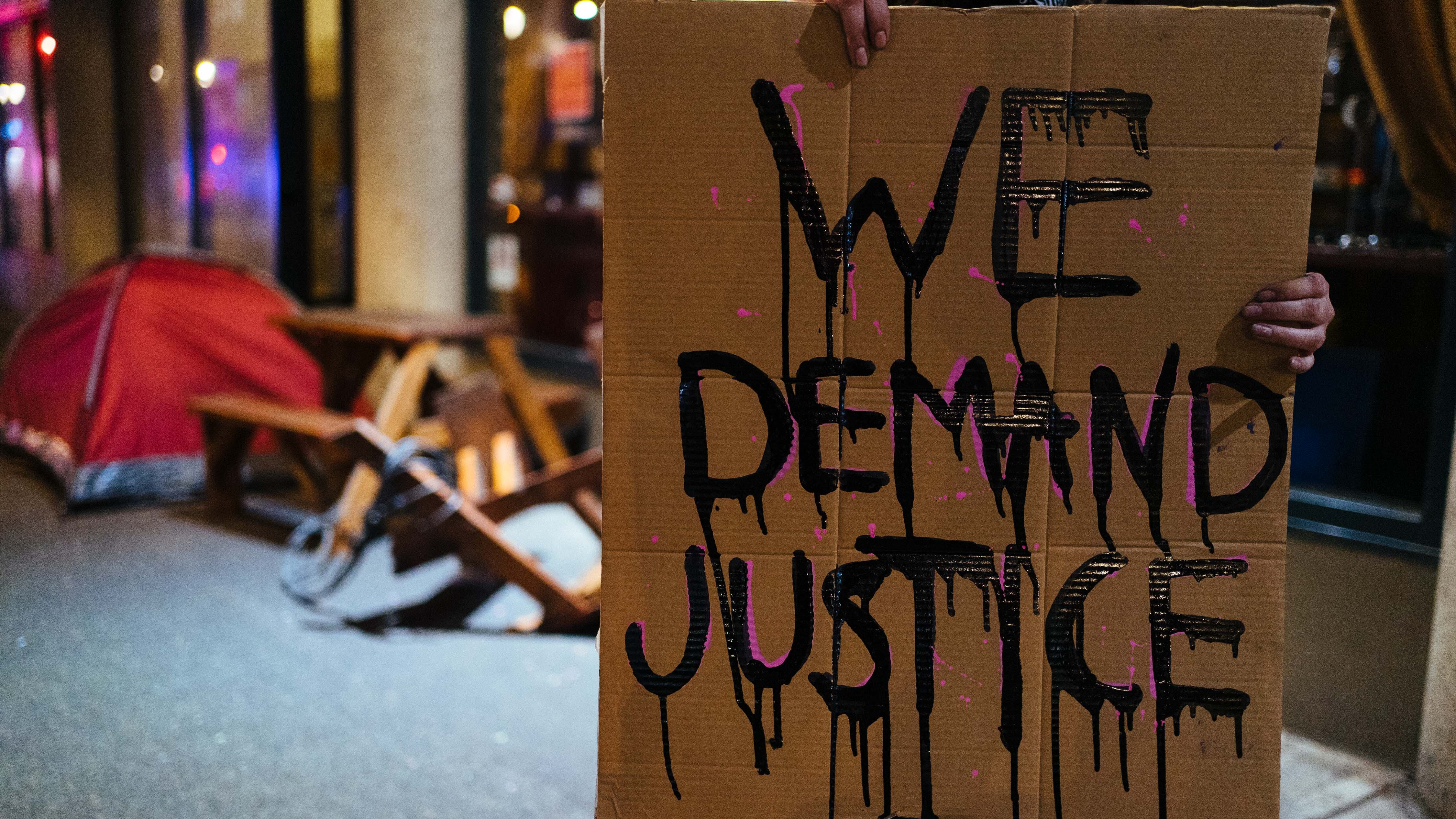Portland activists against police violence briefly established a barricaded encampment in the streets of the Pearl District early Thursday morning, in the most ambitious attempt yet to replicate the "autonomous zone" in Seattle that has attracted national attention.
But few of its founders stayed the night, and police cleared the streets at dawn.
The founding of an autonomous zone in one of Portland's poshest condo and shopping districts was the latest escalation by protesters dissatisfied with the Portland City Council's reduction of the police budget by $15 million this week. The encampment was at least partly an act of personal retribution against Mayor Ted Wheeler for not acceding to demands for $50 million in cuts: Protesters chose to erect the camp outside an apartment building where Wheeler lives.
Activists organized by a group called the PNW Youth Liberation Front marched to Wheeler's house at sundown Wednesday. Activists shined laser pointers in the windows of the building, videos taken by reporter Sergio Olmos show. One person tried to climb the apartment tower via the balconies.
Shortly after midnight, protesters began erecting barricades along four streets, seeking to block the intersection in all directions. They used picnic tables and tree planters from nearby restaurants, metal dumpsters, a WW newspaper box and a construction scaffold. By 2 am, several barricades stood nearly 20 feet tall. In the blocked-off streets, occupiers began setting up camping tents.
Activists wrote the name of the encampment in chalk on the street: "Patrick Kimmons Autonomous Zone." Kimmons was a Black man killed by Portland police in 2018, after he shot two people and ran toward officers while holding a gun.
For much of the past week, Portland protesters made short-lived attempts to block streets and declare them an autonomous zone free of policing. They are seeking to replicate a similar zone in Seattle, which was called the Capitol Hill Autonomous Zone and is now called the Capitol Hill Occupied Protest. The Seattle encampment, called the CHAZ or the CHOP, is a peaceful collective that has drawn national fascination, in part because conservative cable news networks have exaggerated its lawlessness to discredit a nationwide uprising.
Seattle's camp was able to grow because police withdrew from the Capitol Hill precinct. Setting up a Portland zone outside the mayor's dwelling made a similar response unlikely—and for much of the night, activists steeled themselves for a police crackdown.
In fact, the camp was removed with little conflict, shortly before 6 am Thursday. Police replicated a tactic they used nine years ago at the Occupy Portland camps: They waited until dawn, when most organizers had gone home, then dismantled the barricades with little resistance. Officers made only one arrest.
The skies of Northwest Portland sounded like a Vietnam War movie this morning, as helicopters buzzed overhead. Police warned residents to stay out of the streets while they cleared the camp. But no gas or explosives were deployed.
Organizers appeared surprised.
"Pigs are threatening the zone. We need bodies NOW," PNW Youth Liberation Front tweeted at 5:39 am. "Camp has been raided, cops are moving in, we do not have enough numbers to hold this down.…If we want to keep this community alive, you can't sleep at home and come back in the morning, 'cause here we are at 5:45 am and the cops are about to royally fuck like 12 people holding it down."
By midmorning, few physical signs remained that the zone had existed. Activists vowed on social media to try again.
Chief Chuck Lovell said the Portland Police Bureau would not tolerate the establishment of an autonomous zone in Portland.
"The actions taken by some to barricade city streets and begin the creation of an autonomous zone caused great concern for public safety," Lovell said in a statement. "Emergency responders need to be able to respond to critical life safety calls. There are acceptable ways to express First Amendment rights, and this was beyond the threshold for what is acceptable for Portland."

